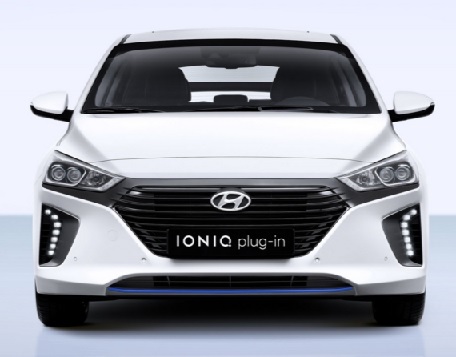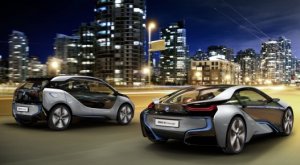Fisker shuttle serving smart cities: Fisker Inc. will be bringing an electric shuttle to  global markets through an alliance with Hakim Unique Group, a Chinese company. The Fisker Orbit will come through the two companies designing, developing, and integrating the Fisker autonomous, electric shuttle into the first project, a smart city implemented by Hakim Unique. Fisker will start delivering the first Orbit shuttles by the end of 2018. It’s built around a shared vision in where public transportation will be going into smart cities of the future. That will come through infrastructure, design, and EV innovation, Fisker said.
global markets through an alliance with Hakim Unique Group, a Chinese company. The Fisker Orbit will come through the two companies designing, developing, and integrating the Fisker autonomous, electric shuttle into the first project, a smart city implemented by Hakim Unique. Fisker will start delivering the first Orbit shuttles by the end of 2018. It’s built around a shared vision in where public transportation will be going into smart cities of the future. That will come through infrastructure, design, and EV innovation, Fisker said.
NEVS 9-3 in production: NEVS began production of the NEVS 9-3 electric vehicle at its Tianjin, China facility, on December 5. The company has annual production capacity of 50,000 EVs in the first phase and up to 220,000 in the second phase. NEVS will be developing three generations of EV powertrains in Tianjin and Trollhattan, Sweden; it was founded in 2012 and acquired the main assets of Saab Automobile after its bankruptcy. The second and third generations of the 9-3 are being developed with Chinese ride-sharing giant Didi Chuxing. The automaker is also working with the Global Energy Interconnection Corp. on a joint venture to provide service and infrastructure for EVs for ride-sharing services. NEVS also announced that it will launch mobility pilot programs in select European cities in 2020.
Ioniq Electric takes top MPGe spot: The Hyundai Ioniq Electric has taken the top spot  for the second year in a row in the 2018 Fuel Economy Guide with its 136 miles per gallon equivalent rating (MPGe). Published annually by the U.S. Department of Energy and Environmental Protection Agency, the guide is based on current model year vehicles. Some vehicles from last year, such as the BMW i3, didn’t make the list this year. Fuel economy information on some vehicles was not available in time to be printed in the guide. All electric vehicles are given an MPGe rating, and plug-in hybrids are ranked by their combined gasoline/electricity rating.
for the second year in a row in the 2018 Fuel Economy Guide with its 136 miles per gallon equivalent rating (MPGe). Published annually by the U.S. Department of Energy and Environmental Protection Agency, the guide is based on current model year vehicles. Some vehicles from last year, such as the BMW i3, didn’t make the list this year. Fuel economy information on some vehicles was not available in time to be printed in the guide. All electric vehicles are given an MPGe rating, and plug-in hybrids are ranked by their combined gasoline/electricity rating.

 test drive. Nissan is the official sponsor of the event for the third straight year. “The timing couldn’t be better. Bringing LEAF to some of the most enthusiastic EV advocates just days after its global debut is the perfect way to kick things off for this technology-packed car,” said Brian Maragno, director, Nissan EV Marketing and Sales Strategy.
test drive. Nissan is the official sponsor of the event for the third straight year. “The timing couldn’t be better. Bringing LEAF to some of the most enthusiastic EV advocates just days after its global debut is the perfect way to kick things off for this technology-packed car,” said Brian Maragno, director, Nissan EV Marketing and Sales Strategy. i-Series was up 73.4% in May at 7,336 units sold. Year-to-date deliveries of electrified models through the end of May reached 33,221, up 80.6%. The BMW 530e iPerformance has been available since March. Starting this summer, the 530e will be manufactured at Magna Steyr’s plant in Graz, Austria. That’s where Jaguar’s I-Pace electric SUV will be built starting early next year. The company also announced that the MINI Cooper SE Countryman ALL4 plug-in hybrid will expand the product line-up of electrified vehicles beginning in late June.
i-Series was up 73.4% in May at 7,336 units sold. Year-to-date deliveries of electrified models through the end of May reached 33,221, up 80.6%. The BMW 530e iPerformance has been available since March. Starting this summer, the 530e will be manufactured at Magna Steyr’s plant in Graz, Austria. That’s where Jaguar’s I-Pace electric SUV will be built starting early next year. The company also announced that the MINI Cooper SE Countryman ALL4 plug-in hybrid will expand the product line-up of electrified vehicles beginning in late June.